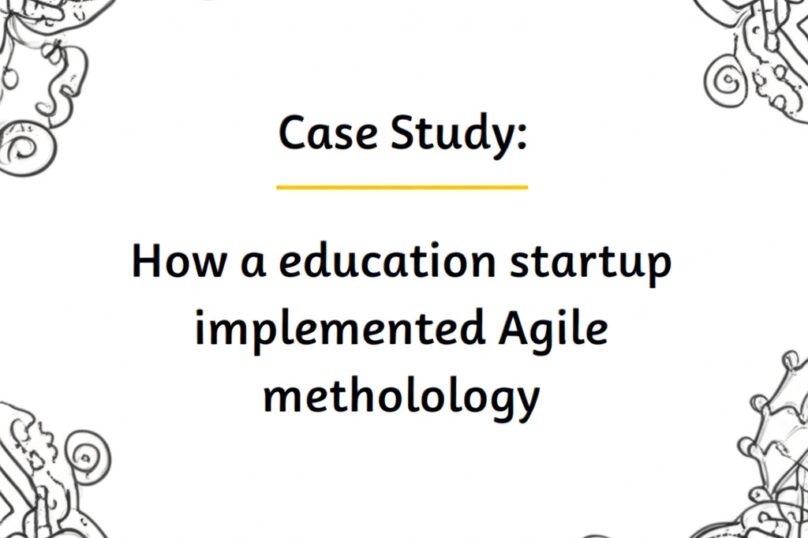Case Study: How a education startup implemented Agile methodology

Case Study: How a Tamil Nadu Education Startup Implemented Agile Methodology and Saw Stunning Results
In today’s fast-paced world, businesses need to be nimble and responsive to change. This is especially true in the education sector, where new technologies and teaching methods are constantly emerging. One education startup in Tamil Nadu, “KalviKai”, understood this and decided to adopt an Agile methodology to improve its operations. This case study details their journey and the impressive results they achieved.
The Challenge: KalviKai, a leading online education platform, was facing several challenges. Their development cycles were slow, leading to delays in launching new features and responding to user feedback. Communication between different teams (development, design, marketing) was siloed, resulting in misunderstandings and duplicated efforts. They needed a solution that would increase efficiency, improve collaboration, and enhance product quality.
The Solution: Agile Methodology
KalviKai decided to implement Scrum, a popular Agile framework. They divided their teams into small, self-organizing units called Scrum teams. Each team had a Product Owner responsible for defining and prioritizing features based on user feedback and market trends, a Scrum Master who facilitated the process and removed impediments, and a Development Team responsible for building the product.
Implementation Steps:
- Sprint Planning: Each sprint (typically 2-4 weeks) began with sprint planning sessions where the team defined the goals for the sprint and created a sprint backlog.
- Daily Scrum: Every day, the team held a short stand-up meeting to discuss progress, identify roadblocks, and plan the day’s work.
- Sprint Review: At the end of each sprint, the team presented the completed work to stakeholders and gathered feedback.
- Sprint Retrospective: After the sprint review, the team held a retrospective meeting to identify areas for improvement in their process.
Key Changes Made:
- Improved Communication: The daily scrums and sprint reviews fostered open communication between team members and stakeholders. This eliminated misunderstandings and reduced duplicated efforts.
- Faster Development Cycles: By focusing on delivering small, incremental changes, the team was able to release new features more quickly and respond to user feedback more effectively.
- Increased Product Quality: The iterative development process allowed the team to identify and fix bugs early in the development cycle, improving the overall quality of the product.
- Enhanced Collaboration: The Agile methodology fostered a collaborative work environment, where team members worked together effectively to achieve common goals.
Results:
- 50% reduction in development time: KalviKai saw a significant reduction in the time it took to develop and launch new features.
- 20% increase in user engagement: The improved product quality and faster release cycles led to increased user engagement.
- Improved team morale and productivity: The Agile methodology fostered a more collaborative and positive work environment, resulting in increased team morale and productivity.
- Better response to market changes: The Agile approach allowed KalviKai to respond quickly to changes in the market and adapt their product accordingly.
Conclusion:
KalviKai’s adoption of the Agile methodology has been a resounding success. By embracing this iterative and collaborative approach, they have significantly improved their development process, increased product quality, and achieved impressive business results. This case study demonstrates the power of Agile in transforming a business and achieving remarkable growth. Other Tamil Nadu education startups can learn valuable lessons from KalviKai’s success story and consider implementing Agile to enhance their operations and achieve similar results.
